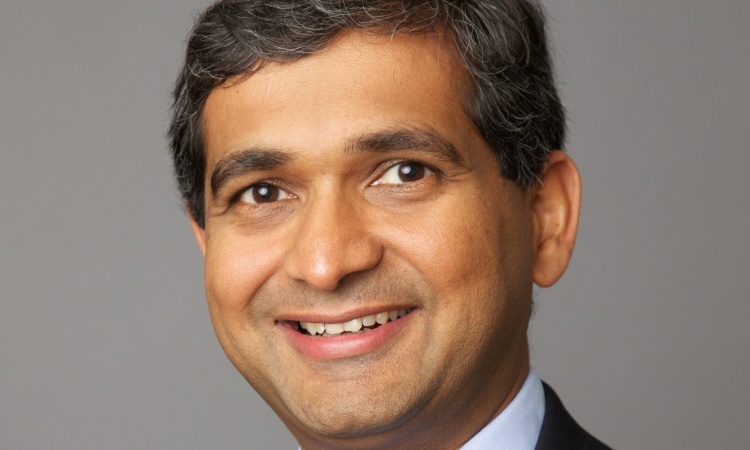Diabetes II
Manufacturers declare support
This year’s German medical diagnostics manufacturers association (Verband der deutschen Diagnostica-Hersteller = VDGH) congress, focused on diabetes. The panel discussion that closed the evening session revealed unanimous support for the adoption of a German national diabetes plan.
Report: Bettina Döbereiner

Estimates suggest there are 387 million diabetics worldwide, a figure expected to rise by almost 35% to reach 592 million by 2035, according to the 2014 Diabetes Atlas published by the International Diabetes Federation (IDF). This prognosis is probably not far off the mark: the Robert Koch Institute reports that, between 1998 and 2011, the number of diagnosed diabetes cases in Germany rose by 38% to a currently estimated six million.
These recent figures support an idea bandied about for decades: the development of national diabetes strategies to complement supra-regional approaches. In the so-called St Vincent Declaration of 1989 a group of experts, convened by WHO Europe and the International Diabetes Federation (IDF) Europe, demanded national diabetes plans (NDPs). Since then, several institutions have endorsed this demand and, in 2012, the European Parliament asked all member States to initiate NDPs according to the ‘Addressing the EU diabetes epidemic’ resolution.
For the highest number of diabetics, Germany ranks number eight in the top 10 countries; and the incidence of type 2 diabetes is among the highest in Europe (Diabetes Atlas & Diabet Med. 2009 Dec; 26 (12):1212-19), so it’s not surprising that the country’s experts have long been calling for a German NDP. However, although 17 out of 28 EU Member States have officially adopted an NDP (Library of National Diabetes Plans, as of December 2013) in Germany the call has gone unheeded .
It may well be that finally the time has come: last year, the German Federal Assembly called on the government to adopt a Prevention Act and a national diabetes plan and, in January 2015, the German daily FAZ reported that the Christian Democratic Party (CDU) confirmed being in the process of drafting an NDP (FAZ, 02.01.2015).
In view of these developments in the political arena, the focus on diabetes at the annual VDGH congress is no coincidence: the medical diagnostics manufacturers want to contribute to the current public health debate and to encourage dialogue between politics, healthcare institutions, research and industry. Above all, however, the players in the medical diagnostics industry want to be part of the NDP development project. ‘We favour a round table which brings together all disciplines – and I consider industry a discipline in this context – to jointly develop a national diabetes strategy,’ said Matthias Borst of Becton Dickinson and VDGH Chairman of the Board, during the panel discussion.
The medical diagnostics industry offers a wide variety of highly sensitive tools for the early detection of diabetes and of disease management devices that allow diabetes patients to measure glucose levels thus helping them to lead a ‘normal’ life. Finally yet importantly medical diagnostics firms invest in new technologies to improve early detection and treatment of diabetes.
The evening session began with a personal account of type 2 diabetic Udo Walz, a society hair stylist, followed by an update on diabetes research from Professor Oliver Schnell, Executive Manager of Forschergruppe Diabetes e. V. am Helmholtz Zentrum München (see information on diabetes research from the Diabetes Congress, also reported here). The highlight of the evening was the closing panel discussion with Professor Schnell, VDGH Member of the Board Matthias Borst, Dietrich Monstadt (Member of the German Parliament, CDU) and Dr Günther Jonitz, President of the Physicians’ Association Berlin.
During this discussion, organised by TV host Susanne Kluge, Dietrich Monstadt, himself an insulin-dependent diabetic and among the initiators of the NDP draft to be presented by the Christian Democratic Party, summarised the state of affairs. The draft is currently being discussed with the Social Democratic Party, the CDU’s coalition partner in the German government, aiming to submit it for consideration by the German parliament.
Monstadt proposes a comprehensive diabetes strategy that not only integrates federal, state and municipal levels but, above all, follows a multi-ministry approach: diabetes prevention, in this strategy, is not limited to the department of health but requires the cooperation of inter alia the ministry of education (e.g. regarding physical education in schools), agriculture (healthy food and diet) and urban development (no fast-food restaurants next to schools).
There was unanimous agreement among panel members unanimously agreed about the need for an NDP and a diabetes strategy that integrates the different stakeholders, including the patients. Moreover, they agreed ‘the sooner, the better’ – maybe even within 2015. However, it remains to be seen whether Borst’s wish to have the industry, represented by VDGH, which was invited to participate in the NDP process, will be fulfilled. In 2013, the Library of National Diabetes Plans in Europe compared the European NDPs and noticed: ‘None of the NDPs mention industry involvement.’
22.06.2015











